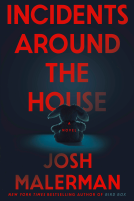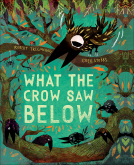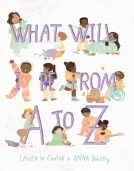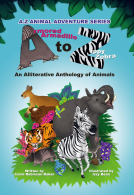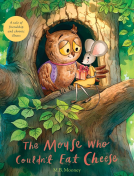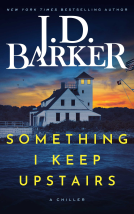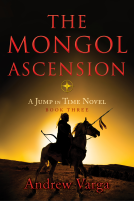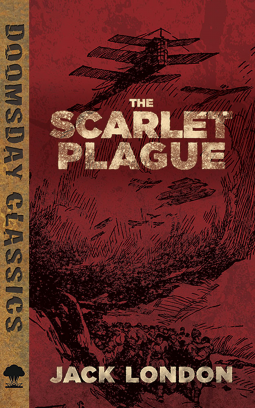
The Scarlet Plague
by Jack London
This title was previously available on NetGalley and is now archived.
Send NetGalley books directly to your Kindle or Kindle app
1
To read on a Kindle or Kindle app, please add kindle@netgalley.com as an approved email address to receive files in your Amazon account. Click here for step-by-step instructions.
2
Also find your Kindle email address within your Amazon account, and enter it here.
Pub Date Dec 16 2015 | Archive Date Mar 03 2016
Description
Jack London's The Scarlet Plague, which originally appeared in The London Magazine in 1912, ranks among the earliest works of post-apocalyptic fiction. This pioneering science-fiction novella, like many of the master storyteller's other tales, explores the thin line between civilization and barbarism. Recounted with humor, suspense, and pathos, London's harrowing vision of the future raises compelling questions about social class, knowledge, and human nature.
Available Editions
| EDITION | Paperback |
| ISBN | 9780486802817 |
| PRICE | $9.95 (USD) |
Average rating from 29 members
Featured Reviews
 Polly K, Reviewer
Polly K, Reviewer
Previously unknown to me, this Jack London short, short story is strangely prophetic in regard to its prescience. Although slow-moving, London's take on a post-apocalyptic world is eerie and haunting. The quick descent of man into barbarism is well told and portentous.
 Wayne M, Reviewer
Wayne M, Reviewer
'The Scarlet Plague' by Jack London is a book I was unfamiliar with until Dover brought it out in there Dover Doomsday Classics Series. I found it a really fun read.
Originally written in 1912, the book takes place 60 years after the great plague has wiped out humanity in the distant year of 2013. An old man, called Granser, tells his unruly (and mostly unlearned) grandsons the story of what happened. Apparently Granser was a college professor, but he can't communicate ideas like math or longer vocabulary words with his grandsons because they simply can't or won't comprehend them. We learn that sometimes when the plague comes, the people who take power are the ones we consider to be the least among us, as we see in the cruel and barbaric Chauffeur.
It was fun to see the vision of our present from 100 years ago. The setting is the bay area, where cities are now very far apart, and the remains of civilization are all around, or buried in the shallow sands of the beach. I've read Jack London, but I've never heard of this short novella. I think it holds up pretty well considering when it was written and I recommend it to any fan of dystopian fiction.
I received a review copy of this ebook from Dover Publications and NetGalley in exchange for an honest review. Thank you for allowing me to review this ebook.
 John L, Reviewer
John L, Reviewer
An old man settles down at the beachside with his three rampantly different, active and glottal grandchildren, and describes to them how he survived the Apocalypse… The extended flashback format might or might not work, and the repetition about how the old man speaks differently to the children is over-done, but I think the piece is well worth revisiting, especially as it is an early genre novella from someone not really known for their sci-fi. London seems to convey the drama of the pandemic hitting with all venom and suddenness very well, and before the book hits its lovely, open ending, it even turns into a socially aware comedy of manners. Some of the writing is quite astute, even if he misses many a beat as regards predicting his future – a world government of seven oligarchs by 2012, and one mad Frenchman attempting 300mph in a plane. Such clunky detail does not detract, and this is a pleasant read.
 Educator 317339
Educator 317339
Although I'm not old (well, not VERY old) yet, I feel sorry for the grandfather's true tales being disbelieved. Considering that my kids don't remember and probably can't truly imagine a time when all telephones plugged into walls, and you TRULY couldn't get in touch with people if they weren't at home or work, I can only imagine how an apocalypse would change beliefs!
 Susan M, Reviewer
Susan M, Reviewer
An old man named Granser and a young boy named Edwin are with a group of his grandsons. Granser was once a professor who survived the red death. His grandsons are listening to the story of the red death. The boys complain that he uses words they don't understand and stuff that they don't care about. Civilization has disappeared and what few humans that still live are reduced to living in the Stone Age. They know nothing about civilization. They are unaware of how much mankind has lost.
This story was originally published in 1912. It is a fantastic dystopian story! It is one of the best that I have ever read. I am quite impressed that Jack London wrote such an accurate picture of the early 21st century before the plague. I enjoyed the illustrations that come with the story. The illustrations are perfect. What was all too real for me is that I could see a man-made plague doing this to mankind. Read it!
 Reviewer 236394
Reviewer 236394
So somehow I had no idea Jack London had written a dystopian story.
I suppose it is more "post-apocalyptic" than "dystopian," strictly, but the line has always been a bit fluid to me.
The "scarlet plague" itself is actually scarier than most of the imagined diseases that destroy mankind, mostly because of how quickly it kills. Watching it destroy civilization was kind of terrifying, and the aftermath of things was not pretty. The speed with which the modern world became completely unimaginable to the next generation made sense, but was awful to watch.
I also kind of hated most of the younger generation, because they were horrible little monsters, but that's neither here nor there.
The whole story does feel very Jack London simply because we are looking at a "man versus nature, nature wins" scenario, but the wider focus (and, let me be honest, the whole "end of the world" bit) drew me in a bit more. It's still hardly what I would call "cheerful" (am I the only one for whom "To Build a Fire" was a turning-point in childhood reading?), but it is fascinating reading and something I actually wish I had been aware of before I pigeon-holed Jack London into the "cold + dogs + depressing" category. He is apparently quite capable of more than that.
 Titivillus B, Educator
Titivillus B, Educator
Like 'Call of the Wild', London here explores the fine line between order and chaos. The binary abrasion of civilisation and primitivism is treated with ambivalence as the author presents a dystopian post plague world that the narrator comments on with irony and insight.
 Josef H, Reviewer
Josef H, Reviewer
I have been a fan of Jack London’s works since I was a teenager. While many know him for his more nature-driven stories such as “The Call of the Wild” or “White Fang,” London shows just how good of an author he really is when he strays from the expected and pens a tale such as “The Scarlet Plague.” Dover Publications has put out a new addition of the book to introduce new readers to this great author as a part of its Doomsday Classics line and I was happy to revisit the story once more a couple decades after I had last read it.
60 years after the great pandemic of 2013, only one man was left alive who had witnessed the end of the world. Once the red rash developed, it was too late and the plague spread though the world life wildfire. The old man could remember a time when life could be lived in leisure and with time for pursuits such as reading and scholarly learning that seemed frivolous in the harsh world that had been left behind by the downfall of society. The old man knows that passing along the wisdom of a wondrous society from the past full of arts and science is a treasure that only he can give to his grandsons if only he can get them to listen. Only he can explain how a former professor of literature has become a crazy old man clothed in worn goatskins. His is a story about the end of civilization and the wonders of the past and maybe, just maybe, a glimpse at a possible brighter future.
Casual fans of Jack London that are expecting an adventure tale such as his better known novels may be a little disappointed when they first start “The Scarlet Plague.” This is not a tale of high adventure but rather a slowly unfolding tale about the downfall of society due to a plague. The old man chronicles what happened when the plague began to ravage the world and his escape from the plague into the wilderness. The action of the story is obviously in the past, since the man is retelling what happened 60 years later, and this gives that action a muted quality that works well overall with the rest of the story. Rather than an adventure tale, “The Scarlet Plague” is a very strong intellectual look at the end of the world and its impact upon the survivors as well as on the future of the world. London takes a very deep look into the apocalypse and does not back down. He instead probes it to its roots and shines a light into the darkest corners found at the end of the world.
What makes this short novel a truly amazing literary accomplishment is the fact that it was written in 1912. London’s clear description of the end of the world reads as if was written only a short while ago. It is amazing that he could be so spot on in so many aspects about an apocalypse that would happen a hundred years in his future and could capture this in the novel in such a clear and striking manner. London shows in “The Scarlet Plague” that he is worthy of the title of a classic writer. “The Scarlet Plague” is worthy of the title of a classic and the best book in Dover’s Doomsday Classics line so far.
I would like to thank NetGalley and Dover Publications for this review copy. “The Scarlet Plague” is available now.
Readers who liked this book also liked:
L.M. Montgomery, Crystal S. Chan, Kuma Chan
Children's Fiction, Comics, Graphic Novels, Manga, Teens & YA


